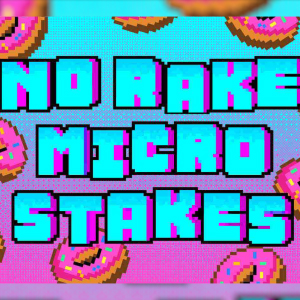Alex Dreyfus: Poker Visionary?
10 years ago
30 Sep
When it comes to having all your fingers in different pies at the same time, Alexandre Dreyfus has his hands full. The ‘poker entrepreneur’ has spent the last several years in the poker world lobbying, buying and selling, creating and improving, and generally involving himself in every aspect of the game.
From the GPI (Global Poker Index) to the Hendon Mob database, to Chili Poker and Winamax, Dreyfus – CEO of GPI/Mediarex Sports & Entertainment -has been a man with a vision for poker, and the determination, money and contacts to make his visions appear in reality.
Now, in his new position as a Huffington Post columnist – albeit perhaps a sporadic gig – Dreyfus has announced his new vision to bring the game of poker into the mainstream once again by touting it as equal parts game, sport and entertainment.
These factors may well seem obvious to those of us who play the game and have done so for a long time, but Dreyfus doesn’t think things are being promoted or pushed in the right direction – engaging the millions out there who don’t know or don’t trust the game and its future.
Dreyfus’ opening shot in his Huff Post column is itself arguable:
“Whilst there are more than 100 million casual poker fans in the world, the game suffers from a tainted image that doesn't reflect its reality”.
Really? From a personal point of view, I don’t see that in the UK, or when I’m travelling and talking about my own poker writing and playing – the reaction from non-poker fans in Europe is that it’s an enviable and perfectly acceptable lifestyle-choice, not the sinful and seedy career of days-gone-by in dingy gangster-run casinos.
Still, the enigmatic Dreyfus has always been a game-changer and his view deserves respect. So, what does he propose to do?
“My vision is to change that image and to make people see that not only is Poker a game but it's a sport and great proposition for entertainment too.”
Says the man whose entertainment company operates the GPI and Hendon Mob database – both of which are mainstays of the global poker community.
“The industry needs a shake-up and that's what I'm here to do - tip it on its head, rebuild and reinvigorate the game so that it gets the audience it so rightfully deserves.”
Dreyfus focuses his HuffPost eyes on the three main issues which he sees as preventing the game from reaching its level of 10 years ago, and pushing its boundaries beyond that which those with power in the game have set as goals.
“Poker is a Game”
No-one would argue with this one. It’s an integral part of the culture now in so many countries; from beer-fuelled home games to mass media representation, poker is omnipresent in the US and elsewhere. As Dreyfus points out:
“Even the advert for the last season of Modern Family was a picture of all the actors playing poker together. It is mainstream.”:Last year he was drawn on the game versus sport aspect of it, apparently falling on the side of the former:
Q:“I do love the game. I love the thrill of the game, I love the sadness and the fun of it.”
But the real truth is that he has been desperately searching for ways to change this fun hobby into something much more ‘sellable’ for many years.
“Poker is a Sport”
This is a more contentious issue, and one which other ‘games’ have struggled with for years. Competitive Bridge is currently in a court battle to gain recognition as a sport in the UK, and while chessin the US and UK has never enjoyed the massive following that poker has attained, it is considered as a sport by most European countries at state-funding and, crucially, legal level. What makes Dreyfus feel that poker could – or even should - break that barrier between ‘hobby/game’ and ‘sport’?
“Being a high-level poker professional today requires a very healthy lifestyle”, argues Dreyfus. “When you look at the best poker players, the players that are travelling all over the world and make a living from these competitions, they are all very fit and most of them are training every single day to be physically and mentally prepared for the competition.”
Very true at the top level, and again it equates to the chess and bridge world’s best players, but as Dreyfus himself argues, poker suffers from a ‘respectability’ issue – “a tainted image that doesn't reflect its reality” - which many other would-be-sports do not. This image, though, seems at odds with the ‘sporting’ aspects he continues with.
“It is a mind sport, a skill game. You can watch it on ESPN, CBS Sports, Fox Sports, Eurosport and many other channels. Is it because it's broadcasted on a sport channel that makes it a sport? No. Poker is a competitive game, like any other sport. You play tennis, you play football, you play rugby, you play poker.”
Naturally, for a game to become a legitimate sport, it really has to be legal everywhere, and as we all know this legality has been an horrendous ongoing issue across the globe. Dreyfus tackled these awkward questions in an interview he gave last year to PokerNews.
“I think that we have to wait for the U.S. and especially California to open online poker”, was his opinion back then, adding, “I believe that once California — and it will happen but it might take a while — is going to open, it's going to have a butterfly effect.”
This ‘butterfly effect’ on legality and legitimacy is of course only one strand - albeit an extremely important one - in the promotion of poker as a sport, and a sport which can once again boom as it did in the early noughties, spreading its tentacles far-and-wide as companies poured money into the online sites and casino availability, which the new-found poker-playing masses were desperate to be a part of. It was entertainment of a new kind, one which Dreyfus has always had at the forefront of his many and varied activities.
“Poker is Entertainment”
“It is thrilling to watch poker, there is an inspirational aspect that makes you believe - rightfully - that you could be sat there, next to the champions”, says Dreyfus. “No other game, no other sport, gives you that opportunity”.
And of course he is right. No-one could conceivably just stroll into a top-class football league or chess tournament and compete against the best while the world looks on and cheers for their hero. Poker does offer this, and the ‘Rounders/Moneymaker’ effects are what Dreyfus is seeking to re-create and expand on.
“More than three million people play poker everyday - for free - on Facebookwithout any hope of earning money or prizes” he points out, adding, “Millions of people are watching poker shows on TVand most important, more are watching real-time poker competitions on livestream.”
This live-streaming, although Dreyfus doesn’t actually expand much on it in his new blogging role, could be one of the break-throughs the game needs.
Jason Somerville’s recent record-breaking ‘live audience’ of 37,000 Twitch viewers catapulted poker streaming into uncharted territory, areas which Dreyfus will doubtless be focusing part of his apparently boundless energy on.
His statement that “Poker has a strong entertainment value proposition. It is very easy to understand and it is very easy to try,” may sound extremely basic, but the poker entrepreneur excels by knowing exactly where and when to involve himself, and why.
“Poker is no longer competing against casino games or sports betting, but against the video game industry and a broader entertainment proposition.”
How does Dreyfus propose to fills these gaps and push poker into his futuristic vision?
“Poker has a large but fragmented global fan base … I believe we need to enhance the game, create proper fan engagement - that doesn't exist anymore - and build content to fulfill an existing appetite.”
Let’s see how this works out in practice. The man has proven himself in the past many times, and he may just be the new driving force which poker needs to re-invigorate and re-invent itself on the different levels –a game, a sport and entertainment!
Read the full Huffington Post article here.






Comments
You need to be logged in to post a new comment